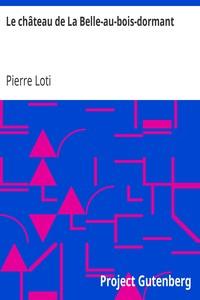|
|
Read this ebook for free! No credit card needed, absolutely nothing to pay.Words: 8303 in 3 pages
This is an ebook sharing website. You can read the uploaded ebooks for free here. No credit cards needed, nothing to pay. If you want to own a digital copy of the ebook, or want to read offline with your favorite ebook-reader, then you can choose to buy and download the ebook.

: In the Shadow of Death by Kritzinger P H Pieter Hendrick Mc Donald R D Roelof Daniel - South African War 1899-1902 Personal narratives@FreeBooksTue 06 Jun, 2023 ious manner in which the Martial Law regulations were carried out, and nothing made greater rebels than the harshness of these regulations. As the situation in the Cape Colony became more and more serious, the most arbitrary and despotic methods were adopted to quell the rebellion by trying to intimidate the Colonists. The policy of the gallows was unscrupulously brought into practice, and the barbarous method of compelling the Dutch residents to attend the execution of their fellow-Dutch was enforced. At Burghersdorp, Cradock, Middelburg, and various other places several rebels were executed. The chief Dutch residents were compelled not only to listen to the public promulgation of these death sentences, but had also to be present at the execution. On July 10, 1901, the execution of one Marais took place at Middelburg. At 9 A.M. he was executed in the presence of the leading residents. Among these was Mr. De Waal, M.L.A., who entered the precincts of the gaol attired in deep mourning. The scene proved too much for him; he broke down completely before the executioner had drawn the bolt. On one occasion no less than fifteen colonists, who were forced to attend the execution of a fellow-colonist, came to my commando and begged me to provide them with horses and rifles. Nothing could induce them to return, for they had seen a comrade slain, and that was sufficient. And so time and again colonists joined the Boer ranks because they had to witness scenes calculated to stir up the most callous and indifferent. If these were moved, how much more the hearts and hands of those linked by ties of blood and love to the fallen! One brother would enlist because the other was heavily fined or imprisoned simply on suspicion. Two or more colonists would club together and join the Boer ranks after a friend or relative of them had been executed. To cite a few instances:-- No wonder that the brothers of this unfortunate man took up arms and became the most pronounced, the most bitter enemies of those who ruthlessly slew, if not murdered, their brother. One of them--Jacobus van Heerden--whenever he spoke of his brother's death, would bite his lips, his face would flush, and one could hear him mutter: "My brother's blood shall be avenged." In the whole commando there was not a more dauntless man than he. But, alas! he too passed away. A bullet was destined to pierce his skull. At a farm, Leeuwfontein, in the district of Murraysburg, he was shot by a Kaffir. When such crimes were perpetrated in the name of Martial Law, we are rather surprised that all the Colonists did not rise to a man. What would the English have done if subjected to such treatment? The Dutchman is naturally slow to move, and very patient. He seems born to suffer and endure. But Martial Law imposed such heavy burdens upon him that he could not but resent them. Where the Boers were too lax in enforcing their Martial Law regulations, the English went to the other extreme in applying theirs too strenuously. Well may we ask whether it was a wise policy which converted so many Colonists into bitter enemies, by subjecting them to such revolting measures. The enlisting of blacks by the British induced many Colonists to cast in their lot with the Boers. If natives were to be employed to crush a kindred race, the Colonists thought that they were justified in rendering assistance to their fellow-Dutch. Moreover, these armed natives, once promoted to the rank of soldiers, tantalized the farmers, who were formerly their masters, to an inconceivable degree. With rifle in hand they would go to these and treat them in the most insulting manner. They would commandeer bread, butter, milk, clothes, horses, and everything else they pleased, and woe to the man or woman that did not promptly answer their demands. The farmers of the Western Province of the Cape Colony suffered perhaps most in this respect. The natives had all congregated in the villages, and there they were armed to assist in the work of destruction, while the farmer, who required their services, had to tend his flocks and plough his fields all alone. Let us summarize these causes mentioned--causes which to some extent account for the rising in the Cape Colony. They were:-- War on a kindred race without consent of Colonists. The Colonists left unprotected, and thus exposed to danger and temptation. Free books android app tbrJar TBR JAR Read Free books online gutenberg More posts by @FreeBooks
: The Upas Tree: A Christmas Story for all the Year by Barclay Florence L Florence Louisa - Christmas stories Christmas@FreeBooksTue 06 Jun, 2023

: The Measure of a Man by Barr Amelia E Merrill Frank T Illustrator - Fiction@FreeBooksTue 06 Jun, 2023
|
Terms of Use Stock Market News! © gutenberg.org.in2025 All Rights reserved.






